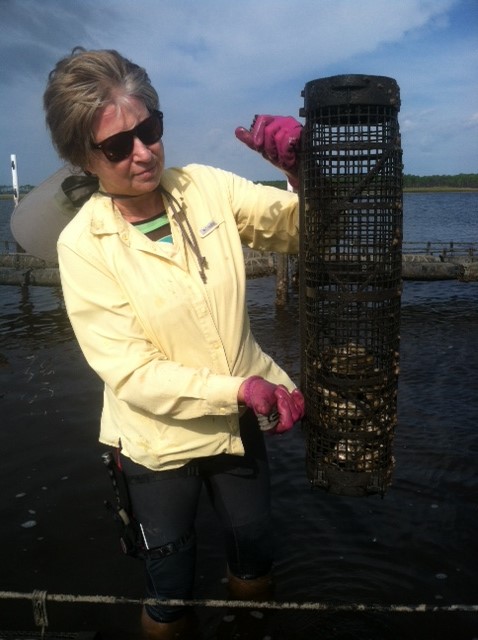Earlier this month, NCCOS and partners kicked off an oyster aquaculture project in Oyster Bay, Fla., that will evaluate the impact of an oyster aquaculture lease area on bay water quality. As filter feeders, oysters remove microscopic plant cells and other organic particles from the water column and have the potential to improve water quality and clarity.
The researchers visitedthe aquaculture lease site to determine sampling and reference site locations, to begin water quality sampling, and to plan project tasks. At present, the leases are unoccupied while awaiting permit approvals and thus provide an opportunity to compare water quality before and after implementation of the leases.

Project partners include NCCOS, Florida A&M University, Florida State University, Tallahassee Community College Wakulla Environmental Institute, The Nature Conservancy, and the Florida Department of Agriculture and Consumer Services. The project team also includes a PhD student participating in NOAA’s Environmental Cooperative Science Center (ECSC) Program at Florida A&M University.The goal of the ECSC is to train a new generation of environmental scientists, particularly from under-represented minority groups, and to develop ecosystem health assessment tools in support of coastal environmental decision making.
For more information, contact Suzanne.Bricker@noaa.gov.
